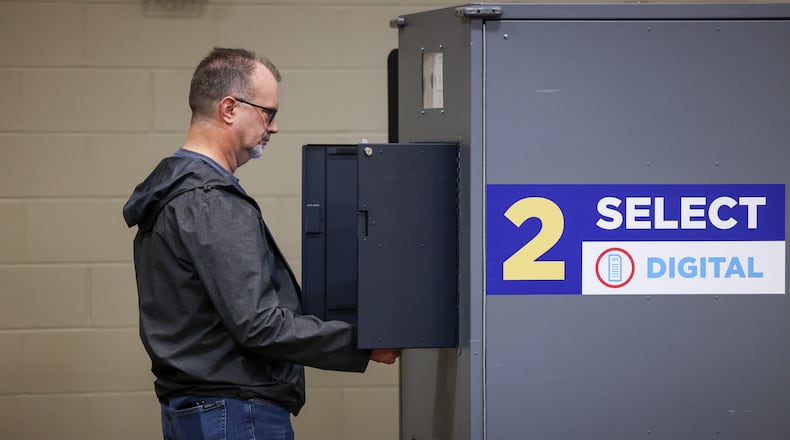These figures did not change after the recount at the Montgomery County Board of Elections on Thursday.
Because of the narrow margin of votes, Ohio law required a recount, with an audit taking place the same day.
Huber Heights City Schools Superintendent Jason Enix said the levy failing to pass is “unfortunate.”
“It was so close, but I think it’s another really important indication for people to understand that every vote matters, and every vote is counted,” he said.
Enix’s team is now turning its attention fully to the state’s budget bill and the impact it could have on all Ohio school districts.
At the end of the election night count in May, voters seemed to be approving the 6.9 mill property tax levy by just 10 votes, with 2,715 votes in favor and 2,705 votes opposed.
But 35 votes from absentee, provisional and curbside ballots remained, and flipped the result after they were counted.
The levy would have generated $7.8 million per year for day-to-day operating expenses like salaries, benefits, supplies and more. It would have cost a homeowner $241.50 per $100,000 in property value each year.
At the beginning of the school year, Huber Heights had one of the strongest cash balances in the region. But the district’s leaders said the high balance was a response to financial difficulties in the early 2010s; officials have predicted deficit spending starting next school year.
The Huber Heights school board in May tabled a reduction plan that would cut $7.3 million in spending in the event the levy did not pass. These cuts would have included more than 20 teaching positions and multiple principal positions. The school district has also proposed raising preschool tuition and other fee increases.
“What that means for us going forward is that we are maintaining our current levels of staffing, support services, resources, all of that way into the next school year,” said Enix.
School board members at their May meeting cited proposals in the state’s draft budget bill that would cap a local school district’s carryover balance to between 30% to 50% of its annual budget.
“We’re watching that carefully, because it does have an implication on on revenue stream locally,” Enix said.


